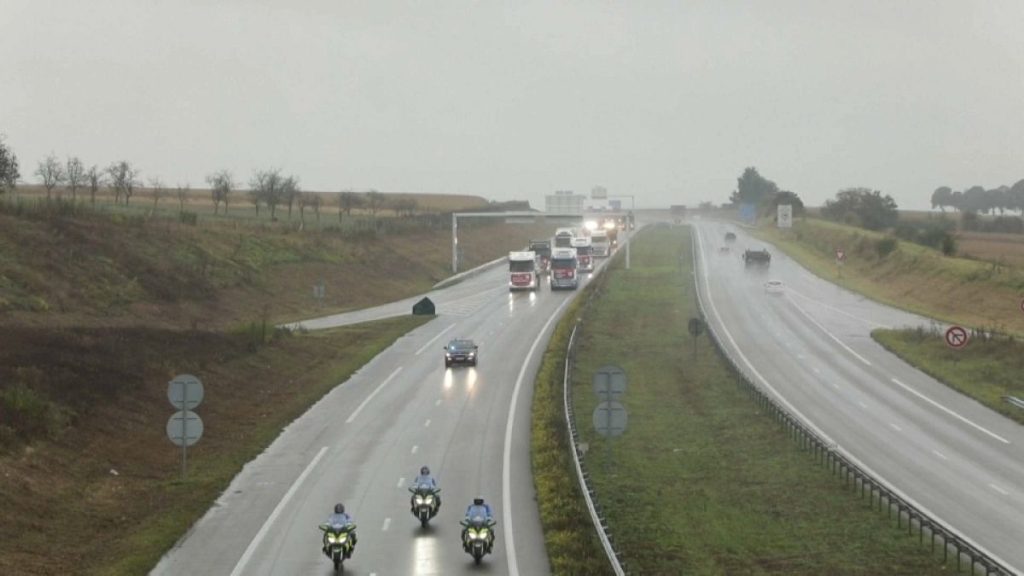The introduction of a 15 cents per kilometre tax for heavy goods lorry drivers in Alsace has sparked protests from those within the industry. The tax, set to be implemented in 2027, targets vehicles weighing over 3.5 tonnes with the goal of reducing transit traffic on the region’s main motorway. Officials argue that this tax is necessary to combat the increasing transit traffic, particularly from European drivers using the route to avoid high ecotaxes in Germany. It is estimated that this tax could generate around €64 million annually, with over 50% of the tax revenue coming from transit traffic.
However, many working in the transit industry fear that this new tax could threaten the survival of their businesses. With already low profit margins, the addition of another tax leaves little room for flexibility. Séverine Richart, of Transports Sateg – FNTR Alsace, highlights that France’s HGV fleet is less competitive compared to other countries, and the new tax will further limit their competitiveness. Frédéric Reinheimer, a road haulier, explains that any new tax directly impacts their businesses due to the tight profit margins they operate within.
Despite these concerns, the Chairman of the Alsace European Community, Frédéric Bierry, insists that the new tax is necessary to address the transit traffic issue. He asserts that the majority of this tax burden will fall on transit traffic, as over half of all traffic falls into this category. The Collective for the Competitiveness of the Alsatian Economy has called for the decision on the tax to be postponed by at least six months, but Bierry has rejected these requests. With a vote scheduled for October 21st, local councillors will decide whether or not to implement the proposed HGV tax in Alsace.
The ongoing debate surrounding the new heavy goods vehicles tax has drawn attention to the broader economic implications within the transit industry in Alsace. Both government officials and those within the industry are grappling with the potential consequences of this new tax on businesses with already slim profit margins. There is a concern that with the introduction of this tax, the competitiveness of France’s HGV fleet could be further compromised, making it more difficult for businesses to survive in an already challenging economic landscape.
As protests continue, the decision on whether or not to implement the tax remains pending until the local councillors vote on the proposal later this month. The outcome of this decision will have significant implications for both the transit industry and the region’s economic competitiveness. While the government argues that the tax is necessary to address transit traffic issues, those within the industry fear that it could pose a threat to their businesses. The debate highlights the complex challenges facing the transit industry in Alsace and the need for a careful balance between economic considerations and environmental concerns.


